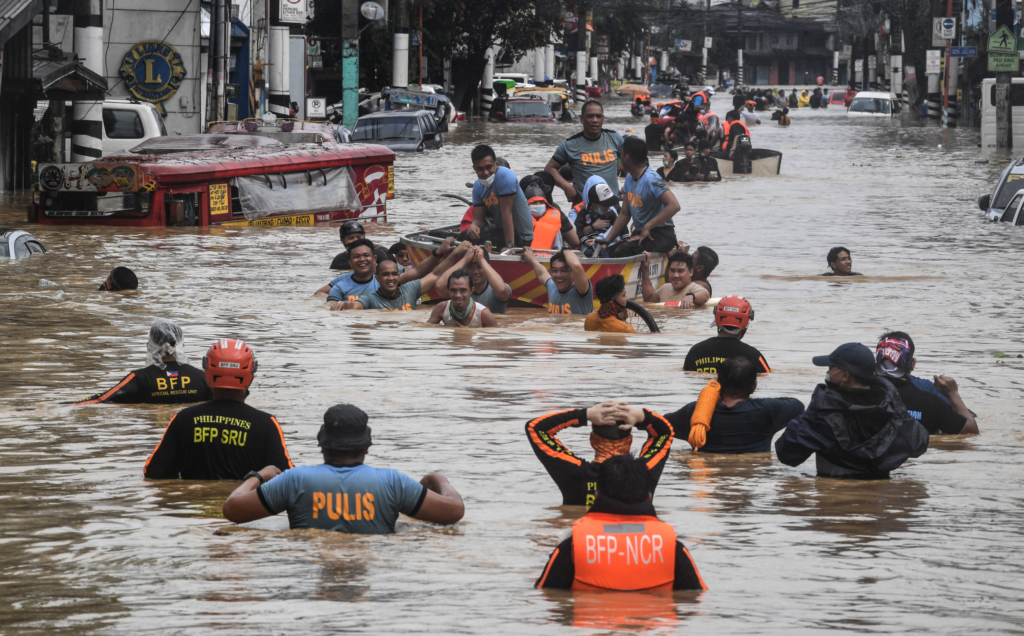Children born today are on course to face a climate future far more dangerous than any previous generation, warns a chilling new study published in Nature (May 7). According to scientists, the youngest among us will be two to seven times more likely to experience a lifetime of disasters—heatwaves, droughts, floods, wildfires, cyclones, and crop failures—than those born in 1960.
The numbers are staggering. Under current climate policies, which predict global warming of 4.9°F (2.7°C) by the year 2100, a child born in 2020 will live through an average of five times more extreme weather events than their grandparents did.

The Devastating Impact of Inaction
The consequences worsen dramatically if global warming continues unchecked. In the worst-case scenario of 6.5°F (3.5°C) warming by 2100:
- 92% of today’s five-year-olds will suffer deadly heatwaves
- 29% will face repeated crop failures
- 14% will endure flooding disasters
By contrast, only 16% of those born in 1960 experienced extreme heatwaves during their lifetime. This stark contrast underscores a severe and growing intergenerational inequality caused by man-made climate change.
A Lifetime of disasters
“Living an unprecedented life (lifetime of disasters),” explains study lead author Luke Grant, means encountering extreme weather events that would otherwise have had a less than 1-in-10,000 chance of happening in a lifetime without human-driven climate change.
The study analyzed global demographic data, life expectancy, and emissions scenarios to estimate the lifetime risk of climate events by generation. It found that even under the most optimistic scenario of limiting warming to 2.7°F (1.5°C):
- 52% of children born in 2020 will still experience unprecedented heat exposure
- Exposure to droughts, wildfires, cyclones, and crop failures also rises significantly
Climate Burden Falls Hardest on the Poor
Perhaps the most tragic finding is how unevenly these risks are distributed. The study shows that under current policies:
- 92% of today’s five-year-olds in low-income families will face multiple climate threats during their lifetime
- Comparatively, 79% of children from wealthier backgrounds will experience similar risks
Children born in the tropical regions—like Sub-Saharan Africa, South America, and Southeast Asia—will face the harshest climate impacts due to geographic vulnerability and socioeconomic disadvantage.
A Wake-Up Call for Climate Action
The study is a sobering call to accelerate climate action. According to experts, cutting emissions now and stabilizing the climate at 1.5°C warming could halve the number of children exposed to life-threatening heatwaves and other extremes.
“This is not just a scientific issue; it’s an ethical one,” said climate researchers Rosanna Gualdi and Raya Muttarak in a commentary accompanying the study. “The actions we take today—or fail to take—will shape the lives of billions of children now and in the future.”

Rising Eco-Anxiety in a Generation at Risk
The growing climate crisis has already taken a toll on mental health. A YouGov-Greenpeace poll revealed that nearly 4 in 5 children under 12 are worried about climate change. Experts now refer to this emotional burden as “eco-anxiety”, which is becoming increasingly common among youth globally.
What Can Be Done?
- Governments must commit to net-zero emissions and support equitable climate policies
- Investments in renewable energy, climate education, and disaster resilience are crucial
- Communities and individuals can play a role through sustainable practices and climate advocacy
Final Thoughts: The Clock Is Ticking
As this landmark study makes painfully clear, today’s children are not just inheriting the Earth—they’re inheriting a crisis. Every degree of warming avoided, every emission reduced, and every climate-resilient policy implemented can mean millions of lives changed for the better.
This is not just about protecting the planet. It’s about protecting our children’s future.
Check this out ! How 450-Million-Year-Old Bacteria Evolved into a Dangerous Superbug











